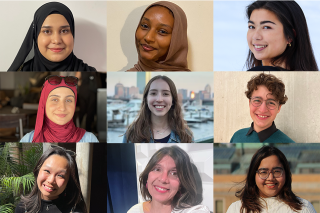The Passionate Leaders Project (PLP) supports Simmons undergraduates by enriching their academic and professional interests beyond the confines of the classroom. Students may request up to $4,000 to support their research, internships, and creative endeavors. This semester’s cohort comprises student scholars producing original research related to human rights, documentary film, healthcare access, therapeutic care databases, the neurodevelopment of fruit flies, Muslims’ experiences with healthcare in Boston, and software that supports Simmons’ food pantry.
Meet the Fall 2023 Cohort!
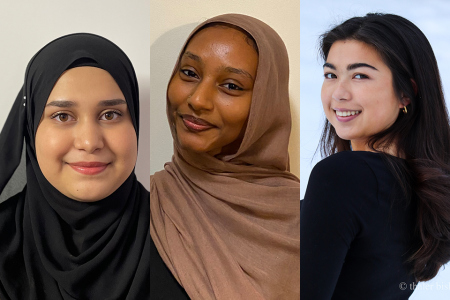
Maleehah Africawala ’25, Fayza Beshir ’25, and Emily Douglas ’25
Major: Computer Science
Project: Developing Software to Expand the REEF Center
Many students rely on their university to provide food and other resources, a reality that the COVID-19 pandemic has heightened. While Simmons University has a resource center to provide for these students, the current system lacks infrastructure due to insufficient funds, making it difficult for staff to keep track of inventory and student requests. The purpose of this project is for students to modify existing Free and Open Source Software and to develop software dedicated to Simmons University’s food pantry, which will help with inventory control, organizing donations and funds, and much more. This project is part of the Humanitarian Free and Open Source Software (HFOSS) project, which involves other universities in Massachusetts developing solutions to support their food pantries.
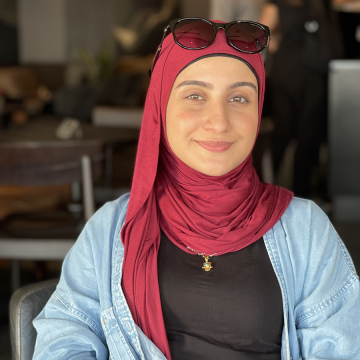
Leila Aydibi ’24
Major: Biology (Pre-Physician Assistant track)
Project: Muslims’ Experiences with the Healthcare System in Massachusetts
The overall goal of this project is to explore Muslims’ experiences with the healthcare system in Massachusetts, particularly the Boston area. This research uses in-person interviews to acquire a better understanding of Muslims’ experiences when receiving care at primary care clinics, urgent care, community health centers, and hospitals. Muslims around the world are very diverse and have different ethnicities and backgrounds. Healthcare professionals will most likely treat a Muslim patient at least once in their careers. It is, therefore, essential to know how to improve the patient’s experience by understanding basic practices that Muslims may prefer. Analyzing these interviews with Muslim subjects will allow us to explore patients’ points of view and their articulations related to certain accommodations.
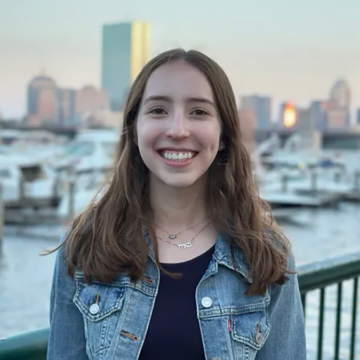
Maya Cohen ’24
Major: Social Work
Project: Alternative Therapeutic Care Database
Mental health is being discussed now more than ever. There are many clients in need of services and too few therapists. Waitlists for outpatient therapists can take months. Our society is in immediate need of alternative services. I have seen this need first hand as a BSW intern at Boston Children’s Hospital’s Primary Care Clinic (CHPCC). This internship offers me the opportunity to work with all patients at the clinic and also with high-risk behavioral health patients who have recently been discharged from a psychiatric hospitalization.
Through the Passionate Leaders Project, I am creating a database of resources for alternative outpatient therapeutic care to be used across CHPCC. These enrichment activities can provide an alternative therapeutic experience for patients outside of a traditional outpatient therapy setting. The first half of my internship will be designated to creating the database. Then, starting in January 2024, I will be working on-call in the clinic. We will ask families what types of resources they seek and, using the database, will make referrals accordingly. This impacts the community by helping to alleviate the demand for outpatient therapy and provides skill-building for patients by engaging them in other enriching and therapeutic programs.
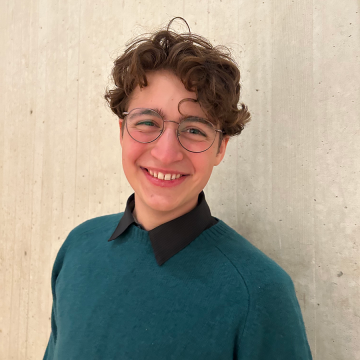
Theo Hatfield ’25
Major: Biochemistry
Project: Neurodevelopment in the Fly: Understanding the Potential Non-autophagic Role of the Drosophila gene Atg8a in the Development of Tourette Syndrome-Related Behaviors
This project explores the Drosophila melanogaster ortholog to the human gene GABARAP, whose expression is negatively correlated with tic severity in some Tourette Syndrome (TS) patients. The protein encoded by this gene plays roles in autophagy and trafficking of various receptors, including EGFR. By knocking down (KD) the gene’s ortholog, Atg8a, in the Drosophila melanogaster nervous system we replicated GABARAP’s decreased expression in those with TS. Initial behavioral screenings of these Atg8a mutants found that they demonstrated positive TS-like phenotypes of obsessive grooming and decreased learning ability. These results indicate that knocking down Atg8a produces TS-like behaviors in the fruit fly; exactly how an Atg8a KD produces these behavioral deficits is still unknown. Given that GABARAP family proteins in mammalian cells demonstrate such a robust role in trafficking EGFR, and dysfunction of the EGFR ortholog in Drosophila results in learning behaviors consistent with those we see in our Atg8a mutants, we hypothesize that Atg8a is serving similar roles in the trafficking of Egfr. Working with Assistant Professor of Biology Seth Johnson, we will evaluate our TS (Atg8a KD) model for variations in Egfr trafficking to understand how this potential dysfunction results in TS-like behavior in Drosophila. In doing so, we aim to investigate a novel trafficking function of the Drosophila protein Atg8a and gain an improved understanding of GABARAP’s role in the development of this poorly understood human condition.
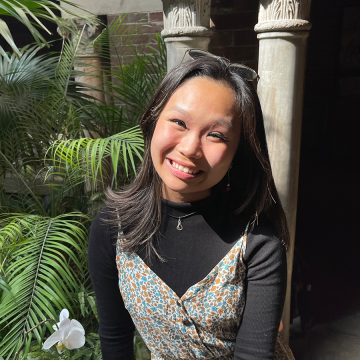
Sarina Lau ’24
Major: Biochemistry
Project: A Salutogenic Approach: Eliminating Barriers to Healthcare Access
The reality of accessing healthcare for families across the country depends on external barriers that disproportionately affect families of lower socioeconomic class. This includes people who are under- and uninsured, of varying citizenship status, and low- to middle-income. This project addresses the barriers to language, transportation, childcare, food insecurity, housing insecurity, and employment. In the context of healthcare access, these barriers play a subtle, yet significant role in patients’ lives. All of the mentioned barriers either enable or hinder the quality of an individual’s health — socially, physically, financially, mentally, and emotionally. This Passionate Leaders Project proposal takes a salutogenic approach to addressing the health-related social needs that heavily impact patient health and livelihood. At The Dimock Community Health Center, a non-profit 501(c)(3) community health center located in Roxbury, Massachusetts, I will provide the salutogenic resources necessary to promote health and well-being as a Patient Advocate intern. I will create translated informational manuals of community resources using Adobe Indesign that address critical health-related social needs of patients at The Dimock Center, many of whom lack access to a computer. My informational manual will reflect cultural competency by providing a hands-on and user-friendly physical resource that promotes accessibility to information by eliminating language barriers and technology literacy barriers. If these health-related social needs are not met, the inevitable result is decreased quality of health and well-being, and an associated increase in illness and disease.
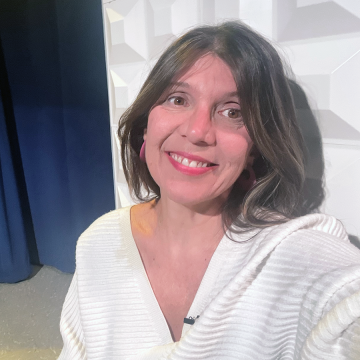
Ana Lindo ’24
Major: Communications
Project: “The Diner Serendestiny”: A True Story Film
“The Diner Serendestiny” is a seven-minute short film that captures the extraordinary essence hidden within everyday life. The film revolves around the miraculous journey of myself, my 12-year-old daughter, and the patrons of Buddy’s Diner in Somerville, Massachusetts. It exposes our serendipitous trip from Sao Paulo, Brazil, in 2018 to this unassuming diner, revealing how chance encounters and ordinary moments can profoundly shape destinies. The documentary film celebrates women’s empowerment and their professional, psychological, and personal growth. Here in the United States, we were able to discover a new social fabric that allows us to flourish as equal individuals in gender and status, reaching a full potential. Perspectives have shifted, and looking back at past abuses, we are becoming activists, championing the empowerment of women's voices.
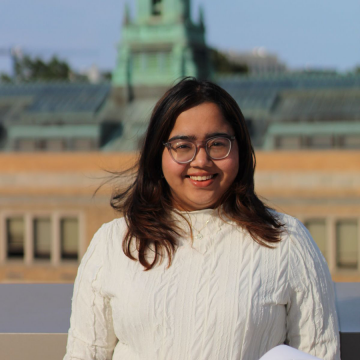
Tanya Samyak ’25
Majors: Economics and Political Science
Project: Sahiyo Internship: Ending the Practice of FGM/C
My project aims to increase awareness and engagement about female genital mutilation and cutting (FGM/C), a practice that has been recognized as a human rights violation by the World Health Organization (WHO), the United Nations Populations Fund (UNFPA), and the United Nations Children’s Fund (UNICEF). According to WHO, FGM/C impacts more than 3 million girls and women annually and continues to be carried out in the western, eastern, and north-eastern regions of Africa, and some countries in the Middle East and Asia.
I will be working with Sahiyo, a nonprofit organization based in Mumbai and Boston, whose mission is to empower Asian and other communities to end FGM/C and to create positive social change through dialogue, education, and community collaboration. In addition to developing blog posts and reflection pieces, I will create and produce a webinar to facilitate discussion about FGM/C, with the ultimate goal of introducing the best techniques, methods, and practices for community engagement and impact. This webinar will include the voices of activists, social workers, and partner organizations, and will be published on Sahiyo’s YouTube page as a community resource.

